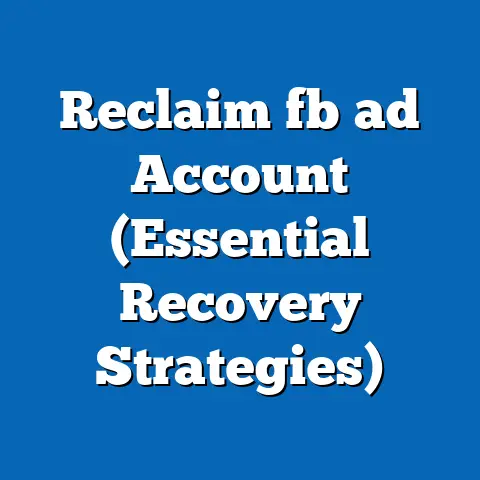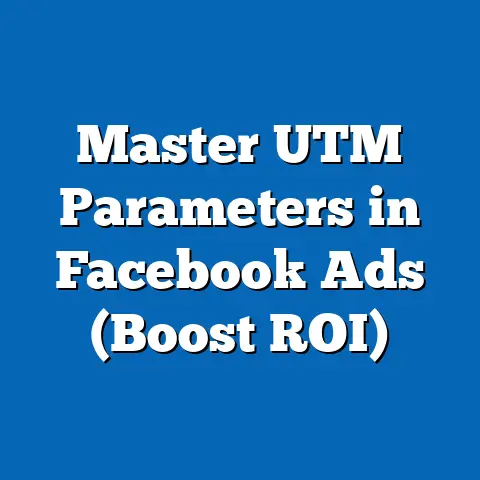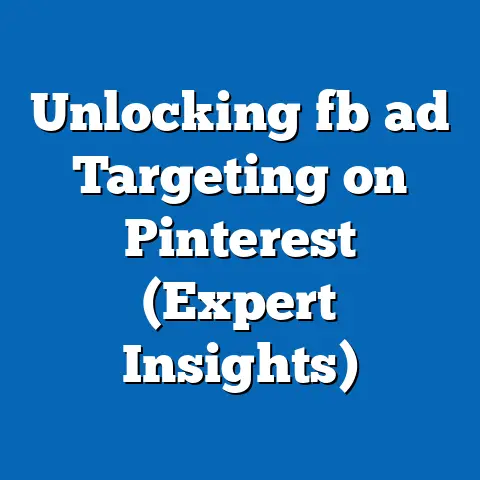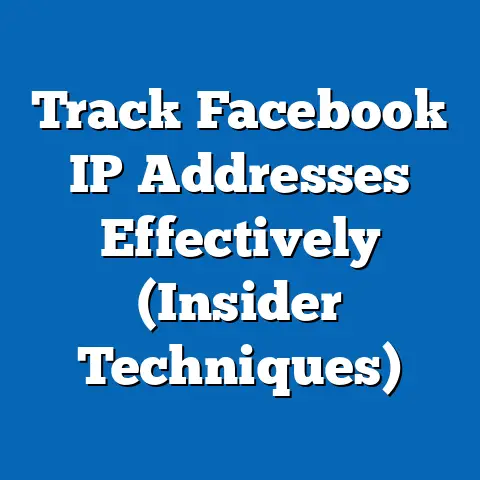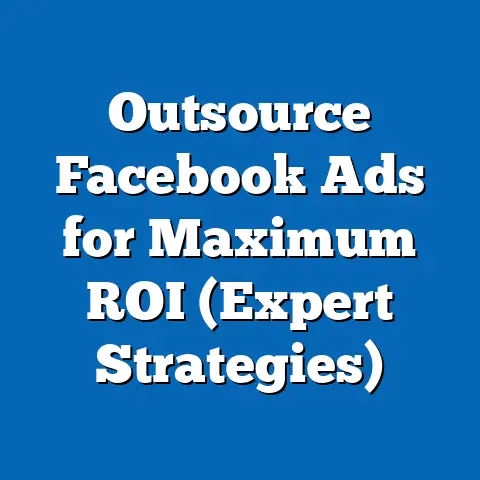Boost a Facebook Event vs Ad (Unlock Strategic Success)
We’ve all been there – planning an event, pouring our hearts into the details, and then facing the daunting task of getting the word out.
Thankfully, Facebook offers a seemingly simple solution: boosting an event or creating a dedicated ad.
These options are incredibly appealing, especially for small businesses, non-profits, or even individuals who don’t have a massive marketing budget or a team of experts at their disposal.
But which path leads to the best results?
I’ve personally seen so many organizers jump into boosting without really understanding if it’s the right fit for their goals.
It’s like grabbing the first tool you see in the toolbox without knowing if it’s a hammer or a wrench!
That’s why I’m diving deep into the benefits and drawbacks of each approach.
By the end of this article, you’ll be equipped to make a strategic decision that unlocks your event’s full potential.
Understanding Facebook Events
A Facebook Event is more than just a digital invitation; it’s a hub for connection, excitement, and anticipation.
It’s where attendees and organizers come together, share information, and build a sense of community.
Think of it as your event’s virtual headquarters.
What makes Facebook Events so powerful?
- RSVP Options: One of the most basic, yet crucial, features is the ability for people to RSVP.
This gives you a clear indication of how many attendees to expect and allows you to tailor your preparations accordingly. - Event Details: You can pack your event page with all the essential information – date, time, location (physical or virtual), agenda, speakers, and any other details that attendees need to know.
- Sharing Capabilities: Facebook makes it incredibly easy for people to share your event with their friends.
This organic reach can be invaluable, especially if your event resonates with a particular community. - Community Engagement: The event page serves as a forum for discussions, questions, and sharing excitement.
You can post updates, answer queries, and foster a sense of community among attendees.
Events create a sense of belonging and shared experience.
They foster relationships, spark conversations, and build excitement around your brand or cause.
This is especially true on Facebook, where people are already connected to their friends, family, and communities.
Did you know? According to Facebook’s own data, events are a significant driver of engagement on the platform.
Millions of people use Facebook Events every day to discover new experiences, connect with their communities, and plan their social lives.
In my experience, well-promoted events have consistently driven traffic, leads, and ultimately, conversions for my clients.
It’s all about leveraging the platform’s built-in tools to their fullest potential.
Boosting a Facebook Event
Boosting a Facebook Event is essentially a simplified form of advertising.
It’s the quick and easy way to get your event in front of a wider audience.
Instead of diving into the complexities of Ads Manager, you can directly promote your event from the event page itself.
How does boosting work?
You choose a budget, select a target audience (usually based on interests, location, or demographics), and set a duration for your boost.
Facebook then displays your event to users who match your criteria, increasing its visibility in their newsfeeds.
What are the benefits of boosting?
- Increased Visibility: The primary advantage is that your event reaches a broader audience than it would organically.
This is crucial for attracting new attendees who may not already be familiar with your organization or cause. - Engagement: Boosted events tend to generate more likes, shares, and comments.
This engagement not only increases your event’s reach but also creates social proof, making it more appealing to potential attendees. - Targeted Reach: While not as granular as Ads Manager, boosting allows you to target your audience based on key demographics and interests.
This ensures that your event is seen by people who are most likely to be interested. - Easy Tracking: Facebook provides basic analytics for boosted events, allowing you to track RSVP numbers, engagement metrics, and the overall performance of your boost.
I remember working with a local animal shelter to promote their annual adoption event.
They had a limited budget and no experience with Facebook Ads Manager.
Boosting their event was the perfect solution.
We targeted local animal lovers and saw a significant increase in attendance compared to previous years.
The simple interface and easy tracking made it manageable for their team, and the results were undeniable.
Key Takeaway: Boosting is a great option if you’re looking for a quick and easy way to increase your event’s visibility and engagement, especially if you’re new to Facebook advertising.
Creating a Facebook Ad for Events
While boosting is like a quick espresso shot, creating a Facebook Ad is like crafting a meticulously brewed cup of coffee.
It requires more effort and attention to detail, but the results can be significantly more rewarding.
A Facebook Ad, specifically designed for your event, allows for much greater control over your targeting, creative, and overall strategy.
You’ll be using Facebook Ads Manager, which unlocks a whole new world of possibilities.
What are the advantages of using Facebook Ads Manager?
- Granular Targeting: Ads Manager provides incredibly detailed targeting options.
You can target users based on demographics, interests, behaviors, life events, custom audiences (people who have interacted with your website or app), and lookalike audiences (people who are similar to your existing customers). - Diverse Ad Formats: You can choose from a variety of ad formats, including carousel ads (showcasing multiple images or videos), video ads (capturing attention with dynamic content), slideshow ads (creating a video-like experience with static images), and collection ads (allowing users to browse products or services directly from your ad).
- Optimized Bidding: Ads Manager allows you to optimize your bidding strategy based on your specific goals, such as maximizing reach, driving website traffic, or generating event RSVPs.
- A/B Testing: You can run A/B tests to experiment with different ad creatives, targeting options, and bidding strategies.
This allows you to identify what works best and optimize your campaigns for maximum performance.
I once worked with a large music festival that was struggling to attract attendees from outside their local area.
Boosting their event simply wasn’t cutting it.
We created a targeted Facebook Ad campaign using video ads showcasing highlights from previous festivals.
We targeted music lovers in specific geographic locations who had expressed interest in similar events.
The results were phenomenal.
We saw a significant increase in ticket sales from outside the local area, proving the power of targeted advertising.
Key Takeaway: Creating a Facebook Ad campaign is ideal if you need precise targeting, diverse ad formats, and advanced optimization capabilities.
Comparing Boosting an Event vs. Running an Ad
Now, let’s get down to the nitty-gritty.
Which approach is really better?
The answer, as always, is “it depends.” To help you make an informed decision, here’s a detailed comparison chart:
Scenarios where boosting might be better:
- You have a small budget and need a quick and easy way to promote your event.
- You’re targeting a broad audience within a specific geographic location.
- You’re primarily focused on driving initial awareness and engagement.
Scenarios where creating an ad might be better:
- You have a larger budget and need precise targeting capabilities.
- You’re targeting a niche audience with specific interests and behaviors.
- You want to use a variety of ad formats to showcase your event.
- You need advanced analytics and optimization capabilities.
Potential Pitfalls:
- Boosting: Overspending on boosts without proper targeting can lead to wasted ad spend and minimal results.
- Ads: Failing to create engaging ad content can result in low click-through rates and poor performance, even with precise targeting.
Making the Right Choice for Your Event
Ultimately, the best approach depends on your specific event needs, marketing goals, and budget constraints.
Before making a decision, ask yourself these questions:
- What are my primary goals for this event? (e.g., increase attendance, generate leads, raise awareness)
- Who is my target audience? (e.g., demographics, interests, behaviors)
- What is my budget?
- How much time do I have to dedicate to advertising?
I spoke with Sarah, a marketing manager for a local art gallery, who shared her experience: “We used to just boost our events, thinking it was the easiest way to get the word out.
But we realized we weren’t really reaching the right people.
We started experimenting with Facebook Ads Manager, and the results were incredible.
We were able to target art enthusiasts with specific interests, and our attendance rates skyrocketed.”
On the other hand, Mark, a community organizer, told me, “Boosting our events has been a lifesaver.
We’re a small non-profit with a limited budget, and boosting allows us to reach a local audience quickly and easily.
It’s not as sophisticated as Ads Manager, but it gets the job done.”
The key takeaway here is to consider your unique situation and the specific goals of your event. Don’t just blindly boost or create an ad campaign without a clear strategy in mind.
Conclusion
Boosting a Facebook Event and creating a dedicated ad are both valuable tools in your marketing arsenal.
Boosting offers a quick and easy way to increase visibility and engagement, while creating an ad provides granular targeting, diverse ad formats, and advanced optimization capabilities.
The right choice depends on your specific event needs, marketing goals, and budget constraints.
By understanding the differences between these two approaches and aligning your promotional methods with your event objectives, you can unlock your event’s full potential for success.
I encourage you to experiment with both strategies to find what works best for you.
Track your results, analyze your data, and continuously optimize your campaigns.
With a little bit of planning and effort, you can create a Facebook advertising strategy that drives attendance, generates excitement, and helps you achieve your event goals.
Now go out there and make your next event a smashing success!

